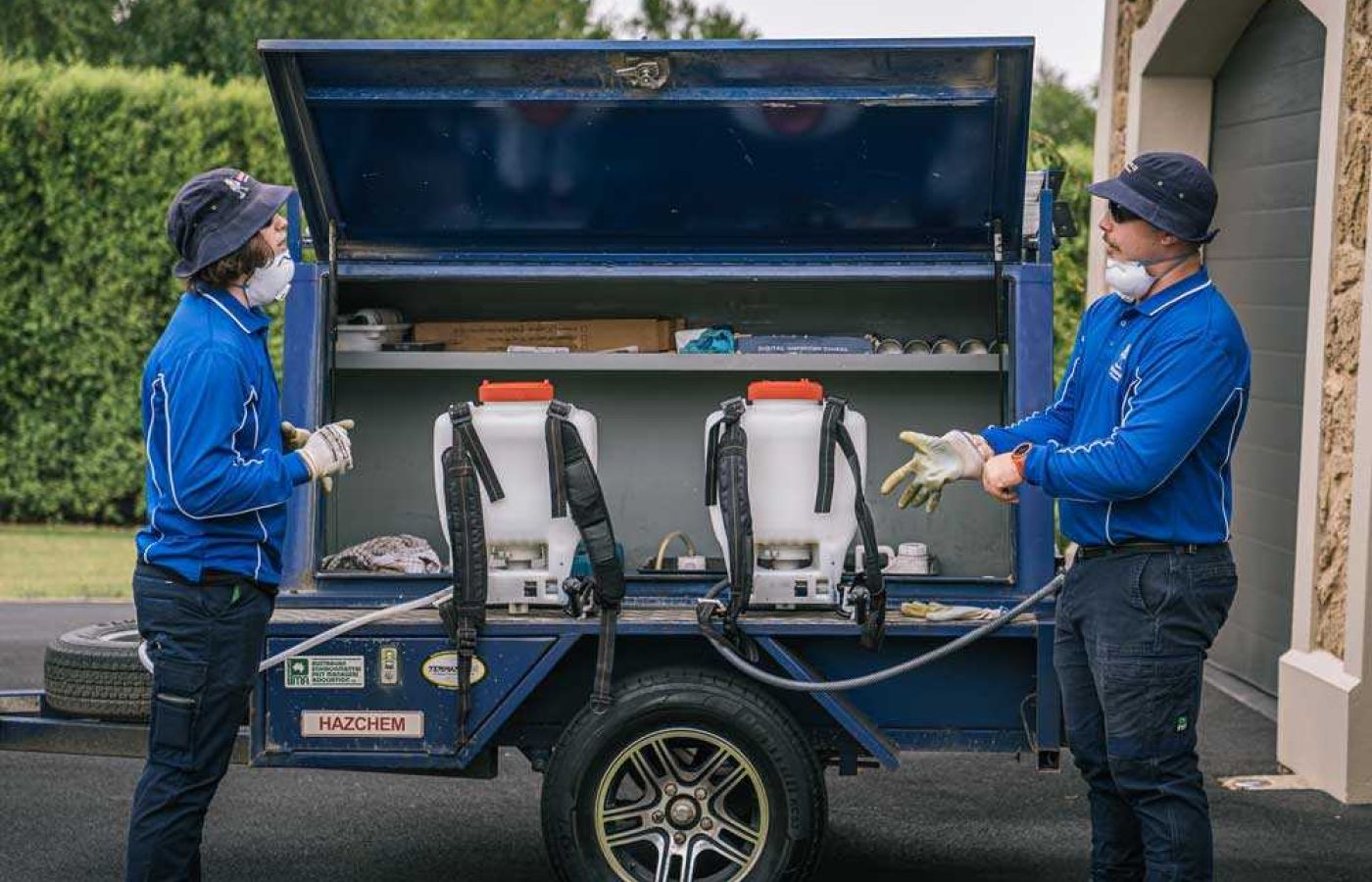
General pest control treatments are a great way to manage household pests, but they aren't a magic shield against all future infestations, nor are they a “one-and-done” fix. Let’s dive into how our treatments work, some common limitations, and tips for maintaining long-lasting pest control after we have done our thing.
Understanding General Pest Control Treatments
Our general pest control treatments target a broad spectrum of common pests like ants, spiders, cockroaches, and other insects that may infest residential areas. Using eco-friendly products applied by trained professionals equipped with space-age jet packs, our treatments prioritise safety and environmental consciousness while aiming to reduce pest populations effectively.
Key Areas Covered in Pest Treatments
Our technicians apply a fine mist of insecticide inside and outside of your property, focusing on high-activity zones. Typical treatment areas include:
- Indoor spaces: Ceilings, skirting boards, window and door frames, and floorboards.
- Outdoor spaces: Eaves, patios, garden borders, and pathways.
By zeroing in on these areas, we help reduce the chance of entry and make your home less appealing to unwanted insect intruders.
Setting Realistic Expectations
Our general pest control treatments are very effective, but understanding their limitations will help you get the best results and avoid any frustration. Here are a few key considerations we like to point out:
Residual Effects and Time to Take Action
After the initial application, the treatment leaves a residual barrier on the surfaces it covers. While this barrier is highly effective, it may not provide an instant kill effect for all pests. Larger insects or those that do not spend as much time on treated surfaces may take longer to be affected. Flying pests like mosquitoes or flies must settle on treated surfaces before experiencing any effects, which means you may still see occasional pest activity right after the treatment.
Reinfestation Is a Possibility
SpidermanSE practices environmentally friendly pest control methods, which means our methods are better for the environment, pets, children, and non-targeted pests. Our treatments are not the toxic nuclear bomb of yesteryear, which offered a once-off, impenetrable barrier. We recommend that follow-up treatments every six months work wonders in keeping pests away and tackling any newcomers that might pop up.
General Pest Control vs. Specialist Pest Control
General pest control involves routine treatments designed to deal with a wide range of common household pests, such as ants, cockroaches, spiders, and flies. Our general pest treatment is a great place to start, but one of our specialist pest treatments may be the way to go for infestations of a particular pest, such as termites.
Importance of Good Hygiene and Maintenance
After treatment, maintaining a clean and clutter-free home is key to enhancing the results. Simple actions, like keeping food sealed, promptly cleaning up crumbs, and ensuring areas are free of standing water, make your home less attractive to pests. Good housekeeping practices, such as vacuuming, decluttering, and removing sources of moisture, can make a big difference in the effectiveness of the treatment.
Specialised Pest Control
While our general treatment is broad-spectrum, some pests require specialised treatments. Here’s a closer look at certain pests that might need more targeted solutions:
- Termites: These wood-destroying pests require a specific approach, usually involving baiting and monitoring systems for long-term control.
- Ants, Fleas, and Bed Bugs: These pests often require tailored treatments and may not be fully controlled by a general application. If you have ongoing issues with these pests, specialised methods are recommended.
- Spiders: Web-building spiders tend to be effectively controlled through our treatments. However, hunting spiders, which do not rely on webs, may still appear occasionally.
Building a Pest-Resistant Environment
Spiderman SE are experts in pest control, but a collaborative approach helps with effective, long-lasting results. Tips we recommend for maintaining a pest-free home until we return for your next scheduled maintenance treatment include:
- Eliminate Food Sources: Keep counters clear of crumbs, secure pantry items in sealed containers, and clean up pet food promptly.
- Seal Entry Points: Small cracks, gaps around doors and windows, and other openings serve as entryways for pests. Sealing these can reduce new infestations.
- Reduce Moisture: Leaky pipes, damp basements, or even pet water dishes can attract pests. Regularly check for sources of moisture and keep these areas dry.
- Monitor Surroundings: Regularly inspect the areas around your home, particularly in gardens, garages, and storage areas where pests tend to hide or enter.
What to Expect After Your Treatment
After treatment, it's quite normal to notice a bit more pest activity as they come out from their hiding spots. Don’t worry; this is just part of the process! Typically, this will settle down within a few days as the pests encounter the residual treatment. If you still see issues afterwards, we can easily arrange follow-up treatments or adjustments to ensure everything stays under control.
When to Schedule Follow-Up Treatments
Pest control treatments are a helpful part of keeping your home comfortable, but they're not a one-time fix. Depending on the type of pest and the pest pressure in your area, we recommend scheduling treatments every three months or once or twice a year to bring the best results, especially if you live in an area where pests are more common. These regular treatments help strengthen your home’s defences and tackle any pesky intruders that may have wandered in since our last visit.

Working Together for a Pest-Free Home
We believe transparency about what general pest control can achieve is important for our clients. By understanding how environmentally friendly general pest control treatments have evolved over the years and how following best practices for home maintenance, you can enjoy a pest-free home.
If you have any questions or concerns, don't hesitate to get in touch with our team! We love talking about pest control, and we are always here to help.
Book your pest inspection and pest control treatment today!

